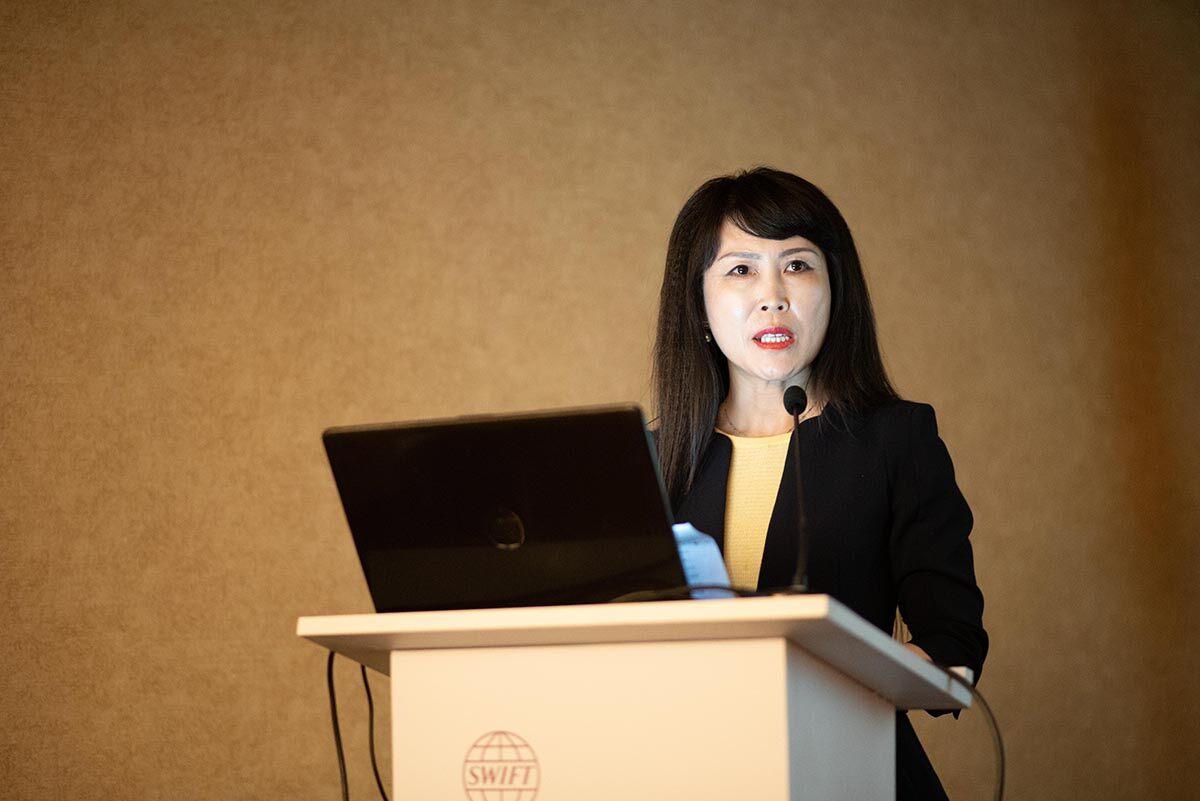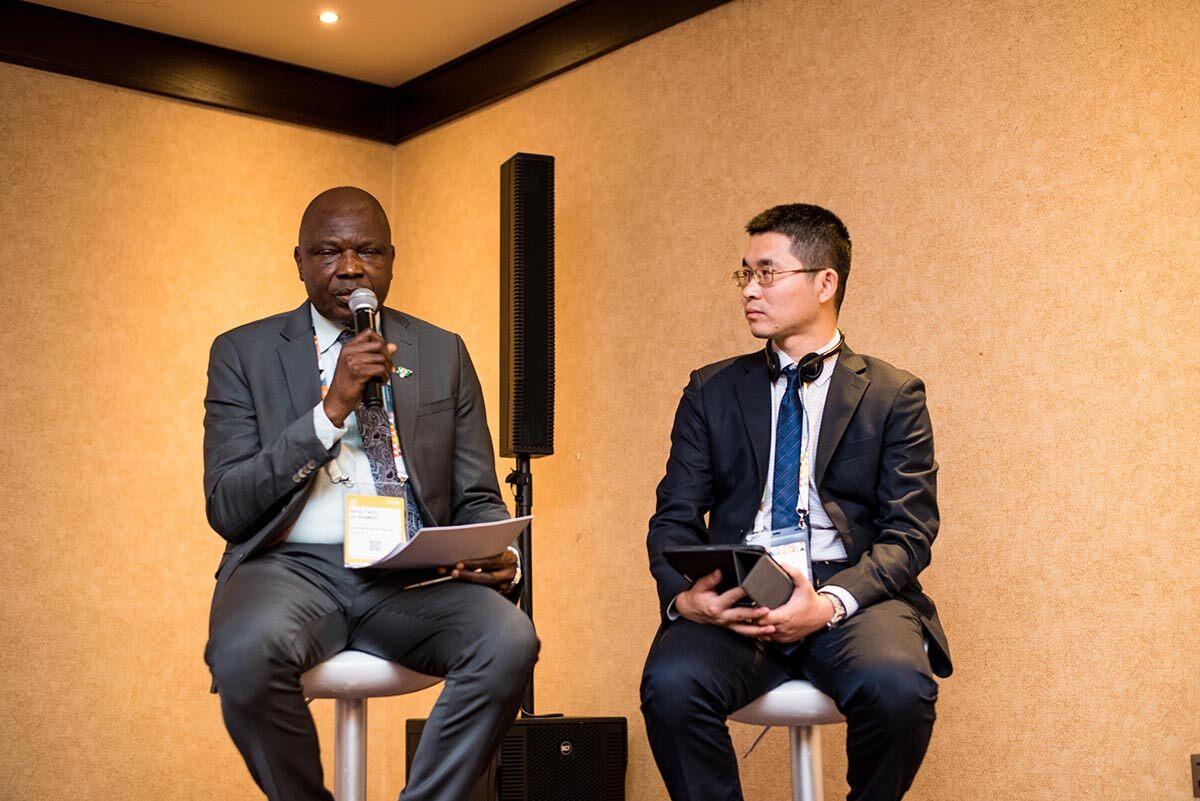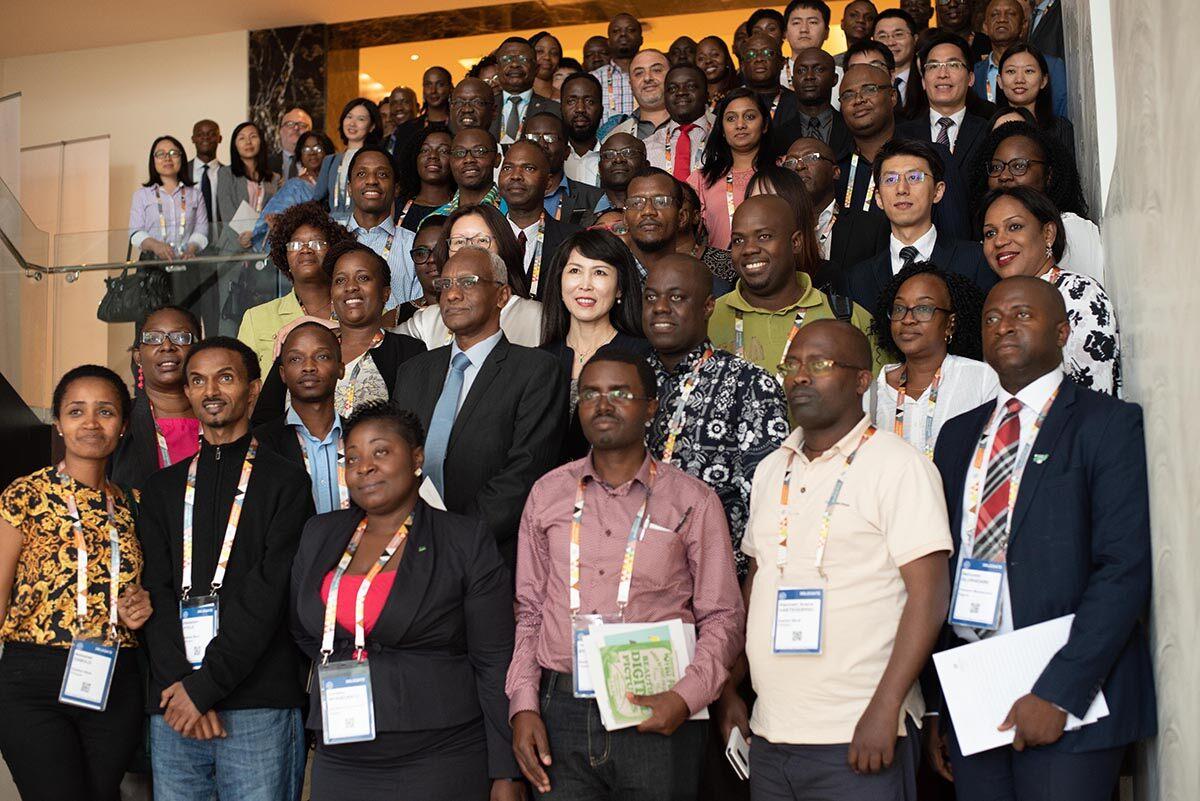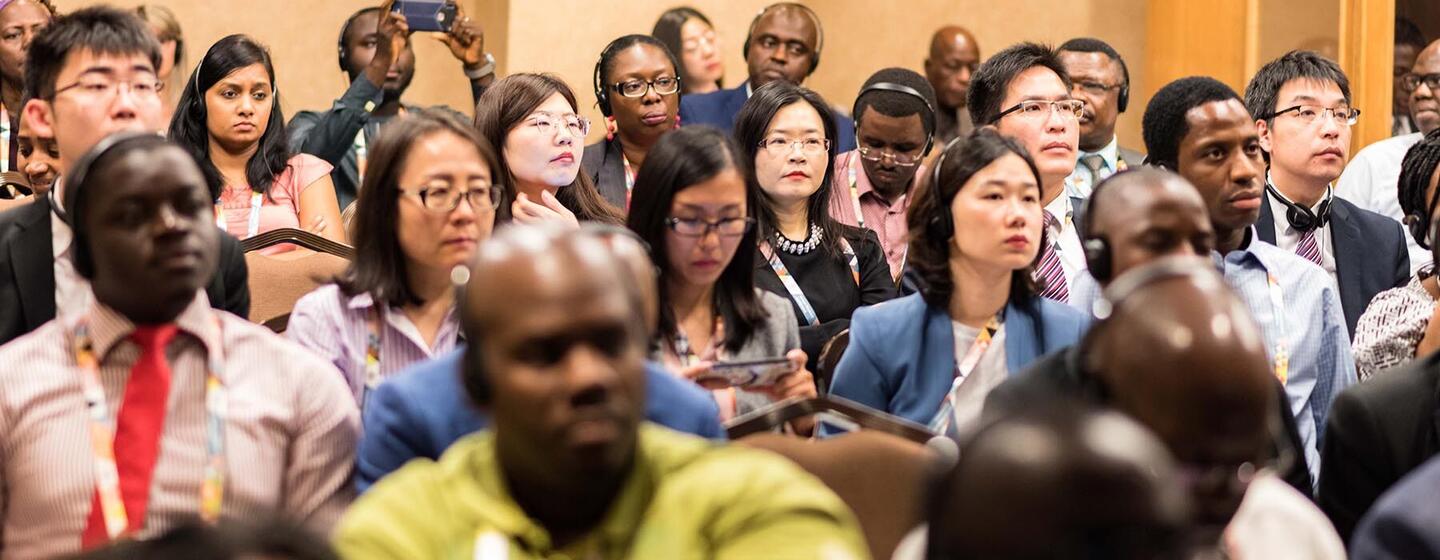150 Participants joined Swift in Accra, Ghana on 17 June 2019 for the first Africa-China Summit
On Monday 17 June, 2019, Swift held the first Swift Africa-China Summit on the side-lines of the African Regional Conference in Accra, Ghana. More than 150 participants joined us from across Africa and China to discuss how to strengthen China-Africa trade relations.
Daphne Huang, Head of China, Swift, set the scene by illustrating the phenomenal growth of trade relations between China and Africa - 20% year-on-year since 2017. Exports from Africa to China increased by 28%, while imports from China rose 7%. "For Africa, this is encouraging,” she said. “With this trajectory, there is no doubt that China will soon become one of the top three foreign direct investors into Africa.”
"Banking services are critical to encouraging trade. Swift’s role is to facilitate these services and strengthen trade and financial connections between China and Africa,” she continued. “This is because Swift is a trusted platform connecting 11,000 institutions across more than 200 countries and territories and allows financial institutions to send secure payments anywhere across the world in seconds".
She highlighted some of the areas that Swift is accelerating to create more value for customers, including Swift’s global payments innovation service, which she stressed is “the most important change in cross-border payments, delivering fast, transparent and traceable payments for banks across the world.”
Our keynote speaker, Elsie Addo Awadzi, Second Deputy Governor at the Bank of Ghana, pointed out that China and Africa have long-standing economic relations and a lot is still being done to develop this relationship.

“The outlook is promising and cooperation will deliver many mutual benefits,” said Addo-Awadzi. “Chinese authorities are engaging closely with the African Union to support the continent’s economic growth aspirations and support infrastructure projects across the continent. More and more Chinese are investing in the China-Africa development fund. This has already reached over $5 billion and is allowing reputable Chinese firms to support projects across Africa.”
At a country level, Addo Awadzi stressed that success is dependent on a number of factors, including national policies to promote investment in Africa and a well-developed and mature financial services sector.
“Ghana, for example, is working to ensure its financial system is well positioned to support increased economic activity with China,” she continued. “The Bank of Ghana carried out a bank recapitalisation exercise in 2018, which helped national banks strengthen their balance sheets, improve their governance and become more attractive partners for international banks.”
What more can be done to further China-Africa trade relations?

The Cross-border Interbank Payment System (CIPS), China, hopes to play a role by increasing use of the renminbi (RMB) in the China-Africa trade channel. To facilitate African financial institutions’ access to the RMB, CIPS uses the Swift network for cross-border RMB clearing and payment services.
“CIPS transaction data shows that the growth of RMB business in Africa is very significant,” said Zhang Xin, Executive VP at CIPS. “In the first quarter of 2018, RMB business in the African region handled by CIPS was more than five times that of the fourth quarter of 2015.”
Xin noted that China's financial institutions have set up more than 10 branches in Africa and eight countries, including South Africa, already have the RMB in their foreign exchange reserves. CIPS itself has 32 participants in Africa in 18 countries.
“CIPS has helped commercial banks in Africa improve their cross-border RMB business levels,” concluded Xin. “In the future, we will continue to optimize system functions, strengthen the security and stability of operations and attract more users to join and use CIPS. This will help promote China-Africa economic and trade opportunities. We welcome any banking institutions in Africa to join us!”
With Africa-China trade relations on the rise, our final session focused on Nigeria and looked at the tools it is putting in place to promote trade with China.

Idris Tahir Alhamdu, Deputy Director of the Banking and Payments System Department at the Central Bank of Nigeria, shared his experience on the growing trade flows between Nigeria and China, strongly supported by both the government and private entities. He stressed the importance of the Nigeria-China Currency Swap Agreement, which allows the Central Bank of Nigeria and the People’s Bank of China to swap a maximum amount of RMB 15 billion for 720 billion naira over a three year period.
“The swap eases the foreign exchange burden on Nigeria and allows us to trade either in Nigerian naira or Chinese RMB, instead of routing through Europe or the US,” said Alhamdu.
Yongsheng Yiu, Deputy Head of Products at CIPS, reinforced the fact that CIPS is supporting the drive for increased use of RMB by providing clearing infrastructure and making it easier to make cross-border payments in RMB.
Looking to the future

The first Swift Africa-China summit clearly demonstrated that both Chinese and African banks are eager to use RMB in addition to US dollar or euro to support their growing trade volumes, and there are an increasing number of tools in place to facilitate this. There was significant interest from the audience as to how they can work with CIPS in the future.


